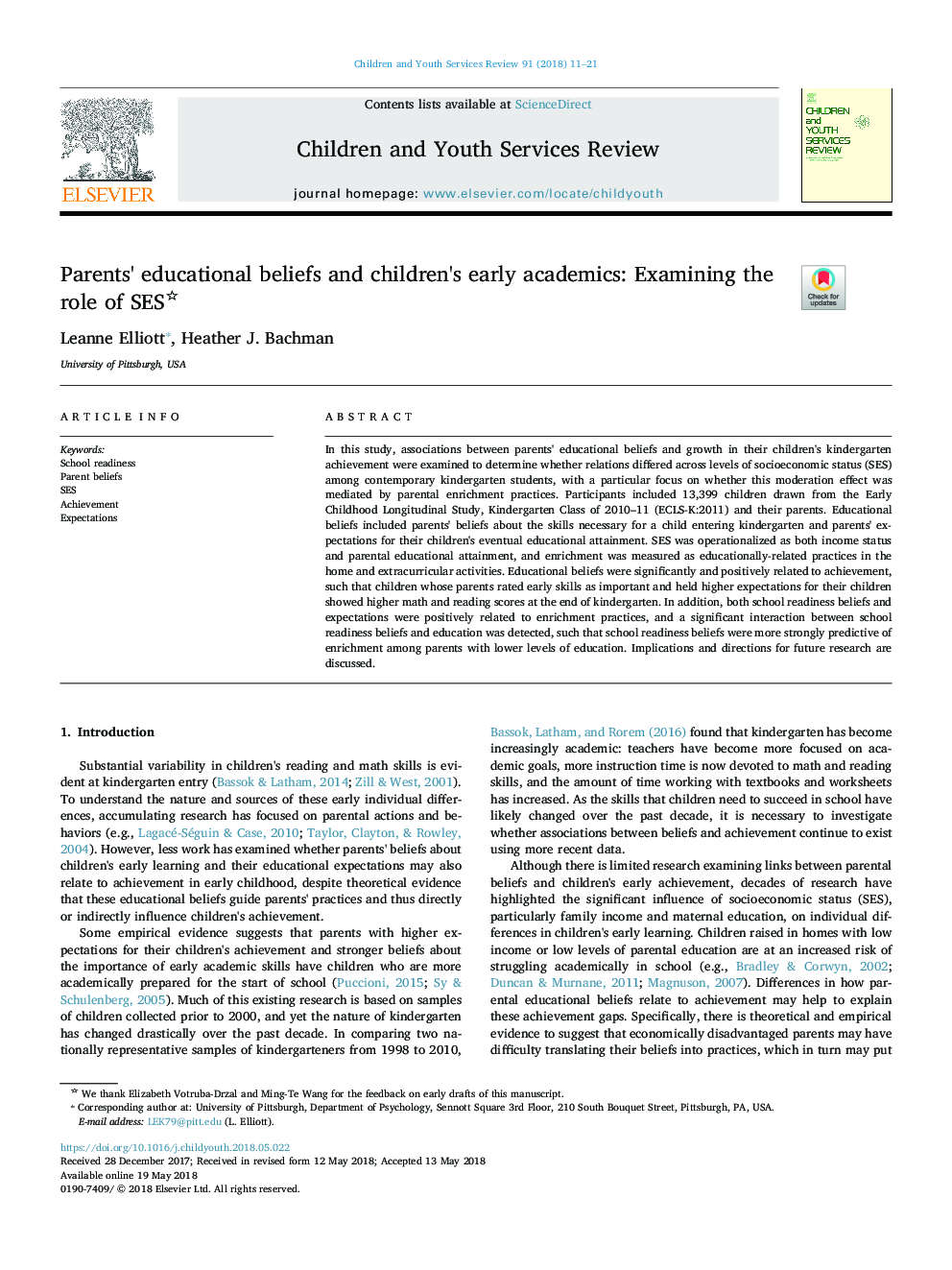| Article ID | Journal | Published Year | Pages | File Type |
|---|---|---|---|---|
| 6832853 | Children and Youth Services Review | 2018 | 11 Pages |
Abstract
In this study, associations between parents' educational beliefs and growth in their children's kindergarten achievement were examined to determine whether relations differed across levels of socioeconomic status (SES) among contemporary kindergarten students, with a particular focus on whether this moderation effect was mediated by parental enrichment practices. Participants included 13,399 children drawn from the Early Childhood Longitudinal Study, Kindergarten Class of 2010-11 (ECLS-K:2011) and their parents. Educational beliefs included parents' beliefs about the skills necessary for a child entering kindergarten and parents' expectations for their children's eventual educational attainment. SES was operationalized as both income status and parental educational attainment, and enrichment was measured as educationally-related practices in the home and extracurricular activities. Educational beliefs were significantly and positively related to achievement, such that children whose parents rated early skills as important and held higher expectations for their children showed higher math and reading scores at the end of kindergarten. In addition, both school readiness beliefs and expectations were positively related to enrichment practices, and a significant interaction between school readiness beliefs and education was detected, such that school readiness beliefs were more strongly predictive of enrichment among parents with lower levels of education. Implications and directions for future research are discussed.
Related Topics
Health Sciences
Medicine and Dentistry
Perinatology, Pediatrics and Child Health
Authors
Leanne Elliott, Heather J. Bachman,
